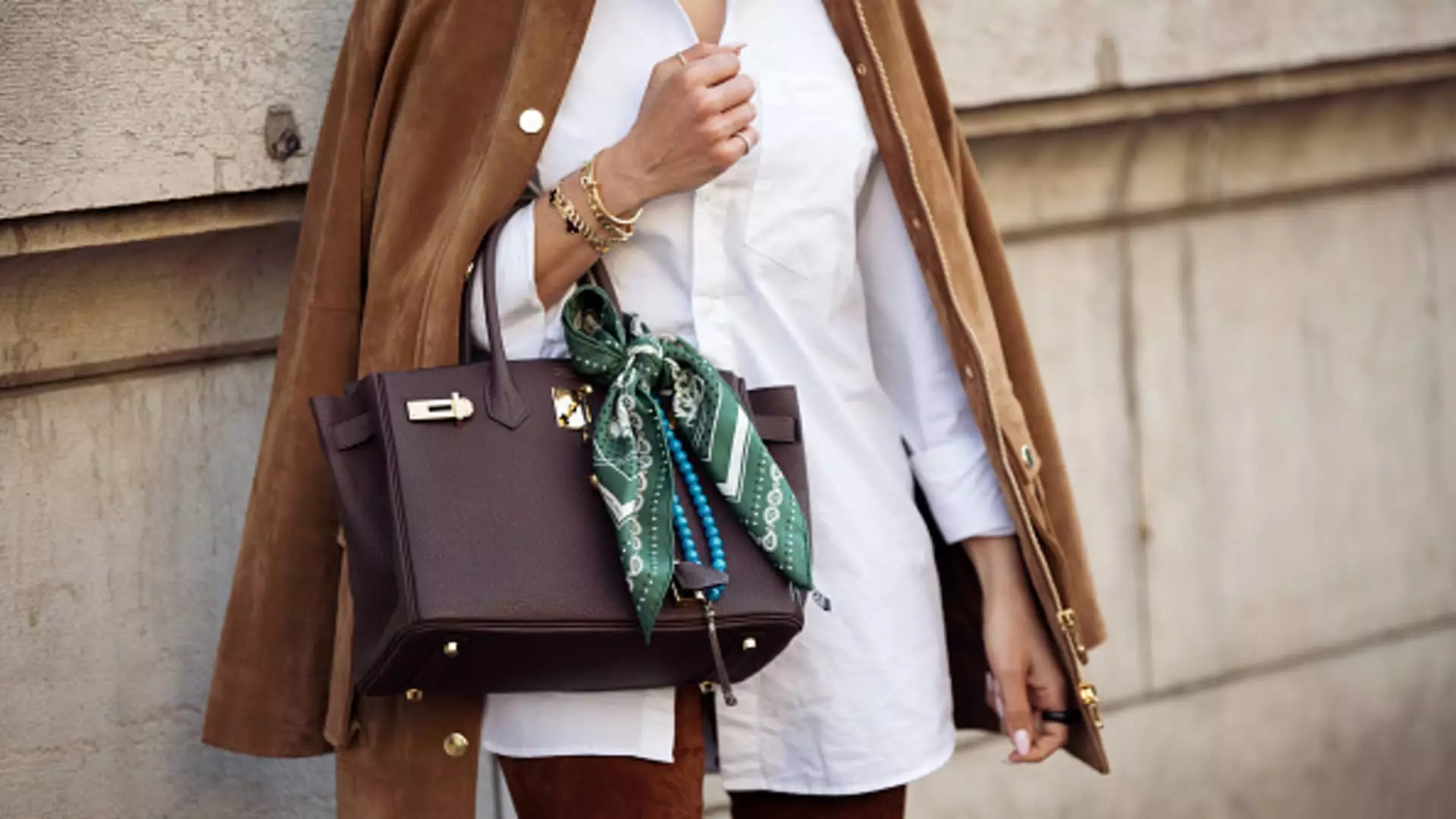In an era where consumer spending is often influenced by broader economic factors, Hermès stands out with its decision to raise prices in the U.S. to counter the tariffs imposed by President Trump. While the luxury brand seeks to position itself against external economic pressures, one must question whether this price escalation reflects a genuine necessity or a strategic exploitation of consumer exclusivity. Hermès, a brand synonymous with elegance and quality, has historically justified its high prices through craftsmanship and heritage. However, confronting tariffs and leveraging them as a reason for price hikes raises ethical concerns about consumer exploitation, especially during economically tumultuous times.
Luxury or Greed?
Hermès’ announcement that it will increase prices specifically in the U.S. begins a dialogue about the morals of luxury brands amidst global economic shifts. The finance chief, Eric du Halgouët, suggests that this adjustment will “fully offset” the impact of the 10% tariff, ignoring the reality that such increases primarily benefit the company rather than the consumer. Luxury brands often capitalize on their esteemed status to pass additional costs onto consumers who are not only willing but often compelled to pay a premium for the prestige associated with them. This prolonged reliance on branding over substance raises pertinent questions about the authenticity of luxury and the responsibilities of brands towards their clientele.
The Impact on Consumers
As we dissect Hermès’ rationale, the immediate concern lies in how these price increases directly affect American consumers. In a market already burdened with rising costs for essential goods, the intrigue of Hermès products may suddenly turn to exclusion. While luxury goods are often viewed in a different economic sphere, these price hikes may alienate even loyal customers who are reevaluating their spending habits in light of economic uncertainties. The increase will not just affect the potential consumers of handbags or scarves; it marks a broader trend within the industry that could lead consumers to reconsider their relationships with luxury brands altogether.
Branding vs. Sales Growth
Hermès has proudly announced an 11% growth in sales within the Americas, emphasizing resilience even in a time of widespread economic uncertainty. However, the question arises: is growth in sheer numbers the same as sustainable success? The company’s first-quarter revenue growth fell short of expectations, while analysts had anticipated a range of 8% to 9%. This shortfall subtly underscores potential vulnerabilities, offering a glimpse into how elevated prices may not align with consumer appetites in the long term. Are record-high valuations solely the product of premium pricing, or do they signify a robust consumer base willing to absorb steep luxury price tags?
Echoing Broader Economic Trends
Furthermore, Hermès must contend with the broader implications of economic headwinds anticipated by analysts. A potential consumer spending freeze due to fears of a recession or global economic weakness places luxury brands at a crossroads. While analysts predict that the luxury market may withstand tariffs better than mass retailers, it only serves to illuminate the divide that can precipitate consumer behavior shifts. As much as high-spending clientele appreciate exclusivity, there lies a threshold—a line at which even the most affluent may reconsider their luxury shopping habits as financial pressures mount.
The Illusion of Necessity
Hermès’ impending price increase reveals an uncomfortable truth in the luxury industry: it often hinges on an illusion of necessity rather than genuine consumer demand. While they certainly have the right to protect their profit margins in response to tariffs, such maneuvers risk contributing to a culture that inherently prioritizes profit over consumer goodwill. As we gauge the long-term implications of these adjustments, the question persists. Is this a strategic maneuver by Hermès or an admission of the impending challenges that may arise as economic landscapes are reshaped?
The decision to increase prices under the guise of external pressures rather than addressing the undercurrents of consumer sentiment may prove shortsighted. If luxury brands like Hermès continue down this road, they may hasten their displacement by not only consumer preference but also market realities.

